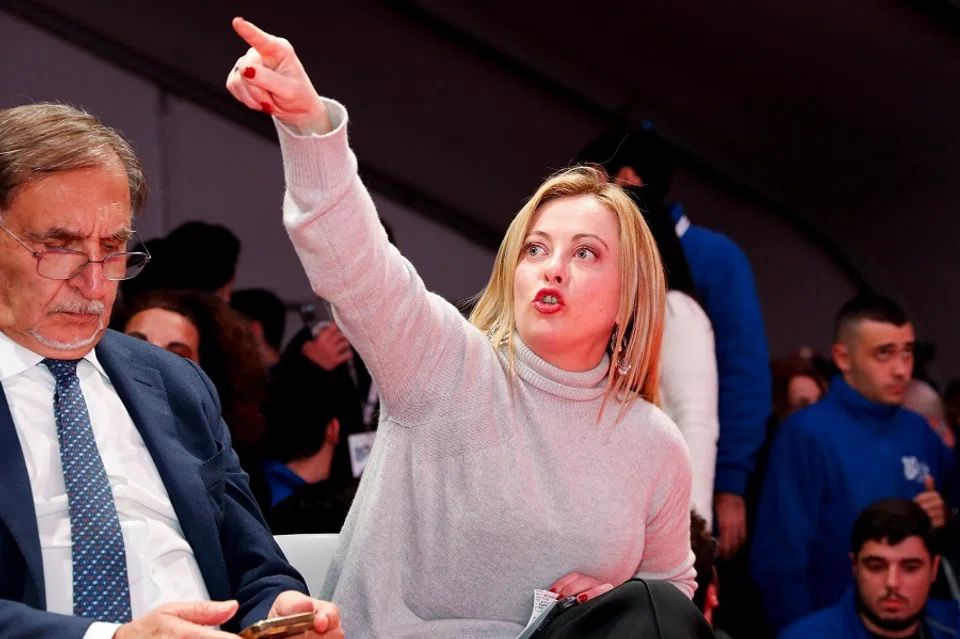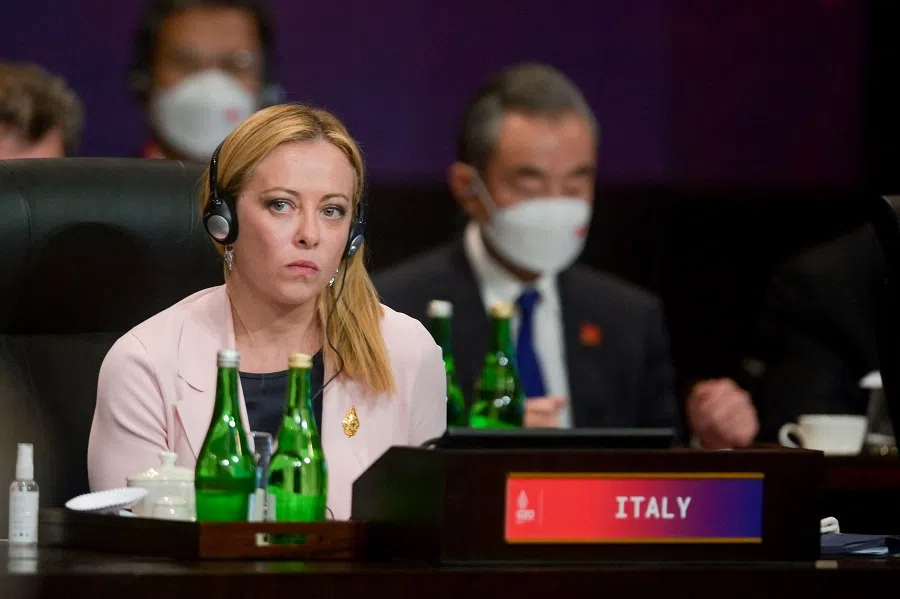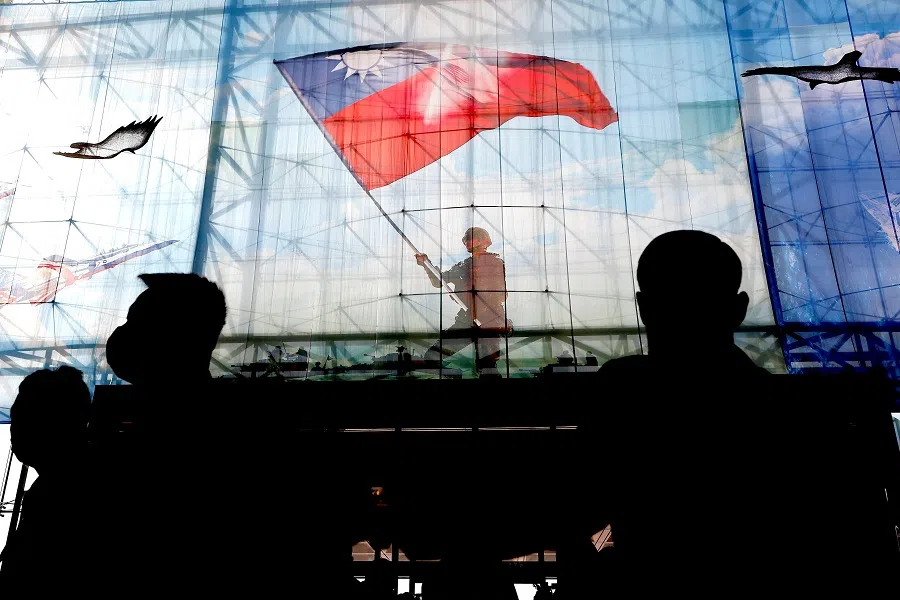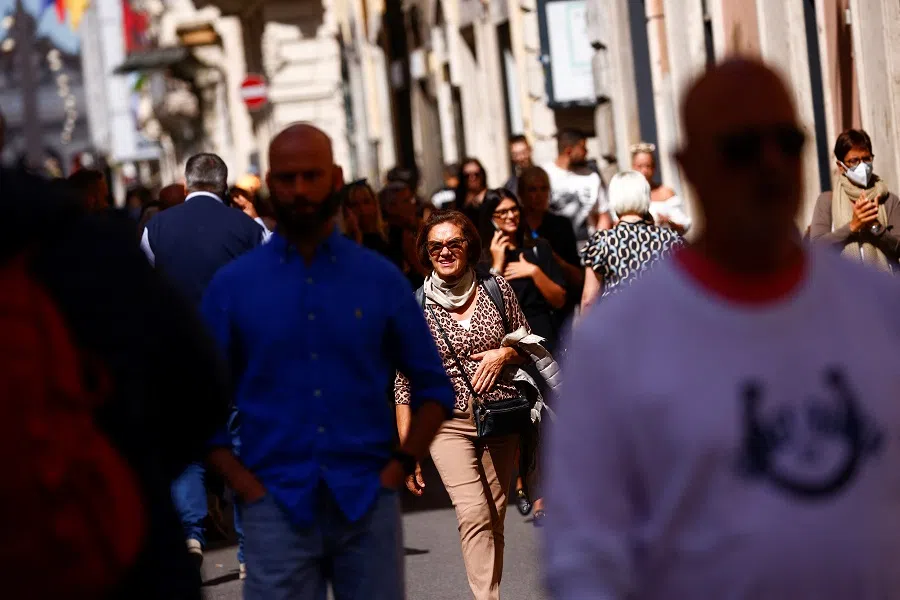Italy's right-wing government can't make up its mind about China?
Italian Prime Minister Giorgia Meloni and her party seem to be adopting a see-saw position on China, notes Italian academic Alessandro Albana. In contrast to voicing strong criticisms in the run-up to the elections, the new right-wing government seems to be engaging China, not least with PM Meloni striking a rapport with China's President Xi Jinping at the G20 Summit in Bali. Do economic imperatives trump election rhetoric after all?

Less than three months after the right-wing government took office in Rome, questions arise over whether Giorgia Meloni's Cabinet will be capable of providing any coherence to its foreign policy.
During and prior to the electoral campaign, Meloni and Brothers of Italy, the far-right political party she leads, voiced frequent and outspoken criticism regarding growing bilateral cooperation between Rome and Beijing. They portrayed not only China but also Chinese individuals in Italy as a source of concern for the Italian economic and political stability. During the G20 summit held in Bali in November this year, however, Prime Minister Meloni showed a remarkable change of tone during her meeting with Chinese President Xi Jinping.
A change of tune?
Traditionally, Meloni's stance on China has been quite clear. In 2008, as the minister for sport, Meloni urged Italian athletes to boycott the Beijing Olympic Games due to concerns over Tibet and human rights violations more generally. After the outbreak of the Covid-19 pandemic in 2020, Meloni accused China of conducting a "disinformation campaign on a global scale". On her Facebook page, Meloni spoke of "despicable Chinese propaganda", urging Italian authorities to demand China an official explanation regarding "the origin of the virus".
In the same vein, Brothers of Italy's xenophobic political discourse did not omit targeting the Chinese community in Italy. Tellingly, as reported by a Sino-Italian magazine before this year's general elections, Chinese people in Italy "did not forget that once [Meloni] claimed that 'Chinese have ransacked Italy's wealth'".
On several occasions, Meloni judged Italy's membership in the BRI to be a "grave mistake", announcing that she would not approve a renewal of the MOU in 2024.

Under such circumstances, it is not surprising that Meloni and Brothers of Italy (as well as the League and Forza Italia, the two other parties forming the ruling coalition) employed a very critical, if not concerned, language regarding the opportunity to strengthen cooperation between Rome and Beijing.
The Belt and Road Initiative (BRI) - which Italy subscribed to in March 2019, inking a memorandum of understanding (MOU) with China under the "yellow-green" government led by the Five Star Movement and the League - became the main target of opposition from the right-wing coalition. On several occasions, Meloni judged Italy's membership in the BRI to be a "grave mistake", announcing that she would not approve a renewal of the MOU in 2024.
Ironically, the key figure behind Rome's embrace of the BRI was Michele Geraci, undersecretary of commerce of the yellow-green government and member of the League (yes, the same party that has shown no fondness of the PRC).
... besides being critical of Italy's participation in the BRI, Brothers of Italy has for a long time sought closer ties with Taiwanese authorities.
Friendly approach to Taiwan
From China's perspective, the looming victory of the right-wing coalition in Italy's 2022 general elections did provide reasons for unease. In private discussions, members of China's diplomatic personnel shared with the author apprehension regarding the future of China's cooperation with Italy under the right-wing government.
Whereas Chinese media and news outlets constantly voiced hope that the Italian ruling coalition "will stick to a pragmatic approach to normal economic and trade cooperation with China", fears that bilateral relations would weaken frequently made headlines in Beijing. In fact, besides being critical of Italy's participation in the BRI, Brothers of Italy has for a long time sought closer ties with Taiwanese authorities.
Senator Lucio Malan, a key figure in the party, acts as co-chair of the Inter-parliamentary Alliance on China (IPAC), an "International cross-party group of legislators working towards reform on how democratic countries approach China". IPAC portrays China as a challenge to Western democracies and campaigns for improving the safeguarding of human rights in the PRC. Senator Malan is also head of the Italy-Taiwan Inter-parliamentary Friendship Group. In this context, earlier this year Meloni met with the de facto ambassador of Taiwan in Rome, Andrea Sing-ying Lee. Such moves did not go unnoticed in Beijing.
... international politics experts in Beijing, perhaps cynically, have shown more confidence in the development of relations with Italy.

Chinese authorities' concerns notwithstanding, international politics experts in Beijing, perhaps cynically, have shown more confidence in the development of relations with Italy. For instance, Zhong Zhun, a scholar of European Studies at Chongqing University, stated before Meloni's appointment as prime minister that "after she formally becomes prime minister, [Meloni] will be influenced by the reality of international relations and professional diplomats", emphasising that ruling a country requires distinctively more pragmatism than conducting electoral campaigns.
Reality of interests
Significantly, it took a short while before the reality of material interests brought about what looks like a change of heart from the Italian government. During the G20 summit held in Bali last November, Prime Minister Meloni and China's President Xi Jinping met at the margins of the initiative, streaming a radically different picture compared to portraits of China provided by Italian politicians of the right-wing coalition - Meloni included - up until a few weeks earlier.
As reported by the Office of the Italian Prime Minister, Meloni showed an interest in "promoting mutual economic interest and increasing Italy's export to China", emphasising the importance of strengthening bilateral communication on a wide range of issues, human rights included. China's Ministry of Foreign Affairs reports also that the Italian prime minister criticised the "bloc confrontation" mentality in dealing with Beijing, and stressed the necessity of improving cooperation with China within international forums, such as the G20 and the UN.
... for Italian ruling elites, the economic opportunities provided by the Chinese market seem to override many, if not every, other political consideration...

While it is too early to tell whether Meloni's conduct at the G20 will mark the beginning of a new course in the Italian ruling coalition's approach to China, the very fact that Meloni's tone vis-à-vis Beijing has already undergone such a significant turn sheds light on two key factors.
Firstly, it highlights the lack of a reasonable (and reasoned) foreign policy vision on part of Italian leaders. In this context, China stands as a convenient foe to be criticised in light of public opinion, and campaigning against Beijing appears a strategic tool to secure larger constituencies, no matter the reality and sustainability of its consequences.
Secondly, for Italian ruling elites, the economic opportunities provided by the Chinese market seem to override many, if not every, other political consideration. This reveals a remarkable weakness in terms of drafting of a comprehensive foreign policy with a long-term strategic vision, providing challenges to national security (broadly defined) in a much more crucial way than China is accused to do.





